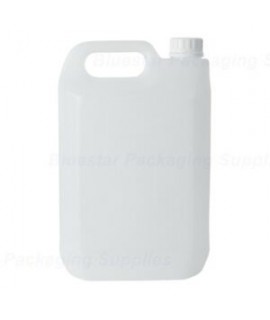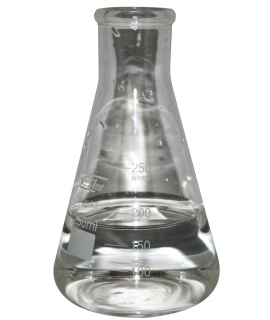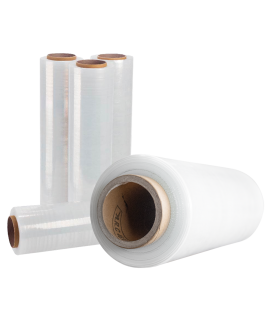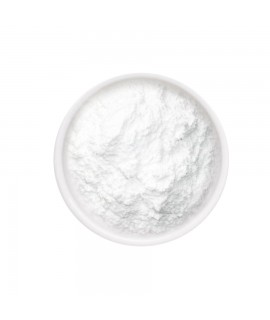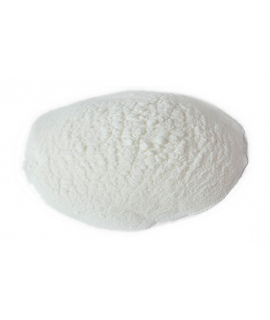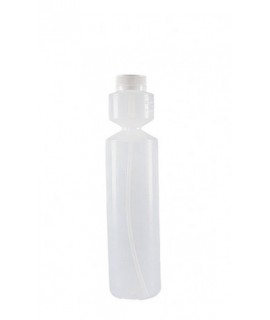SORBITOL 70%, (E420 food grade), L
7.50 €
Sorbitol, CAS 50-70-4, glucitol, INCI SORBITOL, E420, D-glucitol, D-sorbitol.
Parameter | Feature |
Sorbitol | Sorbitol, Glucitol, E420, D-Glucitol, D-Sorbitol |
Formula | C6H14O6 |
Structure |
|
IUPAC | Heksan-1,2,3,4,5,6-heksolis, D-Glucitol |
INCI | SORBITOL |
CAS | 50-70-4 |
Clay mass | 182.17 g/mol |
Density | 1.49 g/cm3 |
Solubility | 2350 g/L in water |
Sorbitol is a food additive of natural origin, a natural carbohydrate alcohol present in many fruits and berries, as well as in the human body. Sorbitol is a sugar substitute of natural origin, first isolated from the frozen fruit of the rowan tree (Sorbus - rowan tree). It is found in apricots, dates, seafood, pears, apples, peaches, fresh and dried plums, grapes and cherries. It is an easily absorbed substance (a nutritious sweetener), quite as calorific as sugar, but has much less sweetness than sugar. Calorific value is 2,6 kcal/g (the average calorific value of carbohydrates is 4 kcal/g). Sweetness is 40% lower compared to sucrose, with little difference in taste. Has the property of retaining moisture.
In the food industry, sorbitol is used as sweetener E420 and is a substitute for sugar and is used in products where sugar (sucrose) is not suitable, e.g. sugar-free chewing gum, surimi products, products for diabetics, products for the keto diet, etc. Sorbitol is less sweet than sugar but tastes very similar to sugar. It is often used in diet foods (including diet drinks and ice cream), cough syrups and sugar-free chewing gum. Most bacteria cannot use sorbitol for energy, but it can be slowly fermented in the mouth by Streptococcus mutans, the bacterium that causes tooth decay. Sorbitol is used as an antifreeze additive (mixed with sucrose and sodium polyphosphates) in the production of surimi, a processed fish paste. In addition to its use as a sugar substitute in sugar-reduced foods, sorbitol is also used as a moisture-retaining agent in biscuits and low-moisture foods such as peanut butter and fruit preserves. In baking it is also valuable as a plasticiser and slows down the sticking process.
In cosmetics, sorbitol is used as a multifunctional ingredient - it is a good moisturiser (humectant), thickener and viscosity regulator. It is commonly used in toothpastes, mouthwashes and transparent skin gels. Since sorbitol is naturally occurring in the human body, it is a skin-identical ingredient with prebiotic properties. It is beneficial for the balance of the human skin microbiome. Sorbitol concentrations in cosmetics: liquid sorbitol 0,5 - 15%, powdered sorbitol 5-50%. Its functions (INCI):
- Humectant: maintains the water content of the cosmetic product both in the packaging and on the skin.
- Masking : Reduces or suppresses the odour or main flavour of the product
- Skin conditioning : Maintains good skin condition
- Fragrance: used in the manufacture of perfumes and aromatic raw materials
In the production of scientific rockets, a mixture of sorbitol and potassium nitrate has proved to be a good and cheap solid fuel. It is an alternative to sucrose as the mixture does not caramelise and is more stable.
In the construction industry, sorbitol-based polyols are used in the production of polyurethane foams.
In fermentation processes, sorbitol is added after yeast in electroporation transformation processes to aid cell recovery by increasing the osmolarity of the medium.
In the fuel industry, sorbitol is used as an intermediate in the production of biofuels. Cellulose derivatives from biomass are hydrated to produce sorbitol, which is reduced to hexane, a component of petrol. In some cases it can be used as a calorific additive in biofuel boilers.
In animal husbandry, sorbitol is used to maintain and improve the nutritional well-being of the animals, since the use of sorbitol reduces the number of gram-negative bacteria and increases the number of gram-positive bacteria in the digestive tract. It also increases the colonies of Lactobacillus reuteri, which improves the microbiota of the animal's digestive tract.
Important: add the product to your basket, fill in the recipient's details and confirm your order. Thank you!
To save your precious time, we will deliver your order to your address at your convenience !
*- Pictures of the goods may not reflect the actual appearance, colour, assembly or shape of the goods and their packaging. The information in the product description is general and may not correspond to the information on the packaging of the product and may not be accurate as to the use of the product. The information given on the stocks and prices of goods may, in certain cases, differ from the actual prices and stocks of goods
**- The product complies with the requirements for the food additive E420 but is not intended for use as a food additive.
Signal word: Not applicable |
Hazard icons: Not applicable |
Danger phrases: Not applicable |
Precautionary statements: not applicable |
Parameter | Feature |
Sorbitol | Sorbitol, Glucitol, E420, D-Glucitol, D-Sorbitol |
Formula | C6H14O6 |
Structure | - |
IUPAC | Heksan-1,2,3,4,5,6-heksolis, D-Glucitol |
INCI | SORBITOL |
CAS | 50-70-4 |
Clay mass | 182.17 g/mol |
Density | 1.49 g/cm3 |
Solubility | 2350 g/L in water |
Sorbitol is a food additive of natural origin, a natural carbohydrate alcohol present in many fruits and berries, as well as in the human body. Sorbitol is a sugar substitute of natural origin, first isolated from the frozen fruit of the rowan tree (Sorbus - rowan tree). It is found in apricots, dates, seafood, pears, apples, peaches, fresh and dried plums, grapes and cherries. It is an easily absorbed substance (a nutritious sweetener), quite as calorific as sugar, but has much less sweetness than sugar. Calorific value is 2,6 kcal/g (the average calorific value of carbohydrates is 4 kcal/g). Sweetness is 40% lower compared to sucrose, with little difference in taste. Has the property of retaining moisture.
In the food industry, sorbitol is used as sweetener E420 and is a substitute for sugar and is used in products where sugar (sucrose) is not suitable, e.g. sugar-free chewing gum, surimi products, products for diabetics, products for the keto diet, etc. Sorbitol is less sweet than sugar but tastes very similar to sugar. It is often used in diet foods (including diet drinks and ice cream), cough syrups and sugar-free chewing gum. Most bacteria cannot use sorbitol for energy, but it can be slowly fermented in the mouth by Streptococcus mutans, the bacterium that causes tooth decay. Sorbitol is used as an antifreeze additive (mixed with sucrose and sodium polyphosphates) in the production of surimi, a processed fish paste. In addition to its use as a sugar substitute in sugar-reduced foods, sorbitol is also used as a moisture-retaining agent in biscuits and low-moisture foods such as peanut butter and fruit preserves. In baking it is also valuable as a plasticiser and slows down the sticking process.
In cosmetics, sorbitol is used as a multifunctional ingredient - it is a good moisturiser (humectant), thickener and viscosity regulator. It is commonly used in toothpastes, mouthwashes and transparent skin gels. Since sorbitol is naturally occurring in the human body, it is a skin-identical ingredient with prebiotic properties. It is beneficial for the balance of the human skin microbiome. Sorbitol concentrations in cosmetics: liquid sorbitol 0,5 - 15%, powdered sorbitol 5-50%. Its functions (INCI):
- Humectant: maintains the water content of the cosmetic product both in the packaging and on the skin.
- Masking : Reduces or suppresses the odour or main flavour of the product
- Skin conditioning : Maintains good skin condition
- Fragrance: used in the manufacture of perfumes and aromatic raw materials
In the production of scientific rockets, a mixture of sorbitol and potassium nitrate has proved to be a good and cheap solid fuel. It is an alternative to sucrose as the mixture does not caramelise and is more stable.
In the construction industry, sorbitol-based polyols are used in the production of polyurethane foams.
In fermentation processes, sorbitol is added after yeast in electroporation transformation processes to aid cell recovery by increasing the osmolarity of the medium.
In the fuel industry, sorbitol is used as an intermediate in the production of biofuels. Cellulose derivatives from biomass are hydrated to produce sorbitol, which is reduced to hexane, a component of petrol. In some cases it can be used as a calorific additive in biofuel boilers.
In animal husbandry, sorbitol is used to maintain and improve the nutritional well-being of the animals, since the use of sorbitol reduces the number of gram-negative bacteria and increases the number of gram-positive bacteria in the digestive tract. It also increases the colonies of Lactobacillus reuteri, which improves the microbiota of the animal's digestive tract.
Important: add the product to your basket, fill in the recipient's details and confirm your order. Thank you!
To save your precious time, we will deliver your order to your address at your convenience !
*- Pictures of the goods may not reflect the actual appearance, colour, assembly or shape of the goods and their packaging. The information in the product description is general and may not correspond to the information on the packaging of the product and may not be accurate as to the use of the product. The information given on the stocks and prices of goods may, in certain cases, differ from the actual prices and stocks of goods
**- The product complies with the requirements for the food additive E420 but is not intended for use as a food additive.
Signal word: Not applicable |
Hazard icons: Not applicable |
Danger phrases: Not applicable |
Precautionary statements: not applicable |
Related products
(8 other products in the same category)





